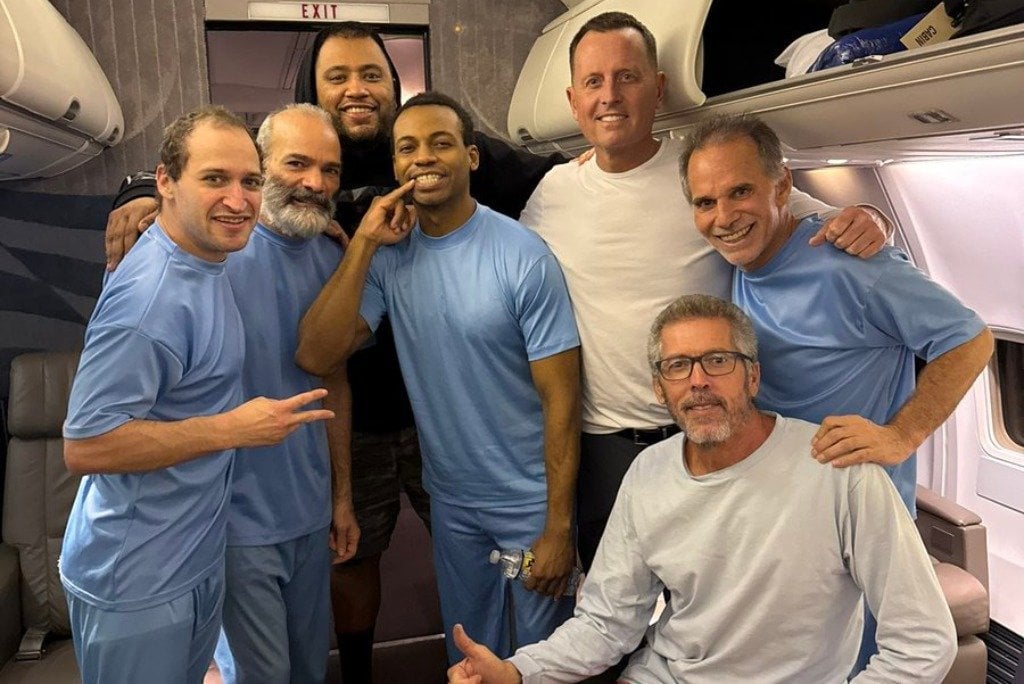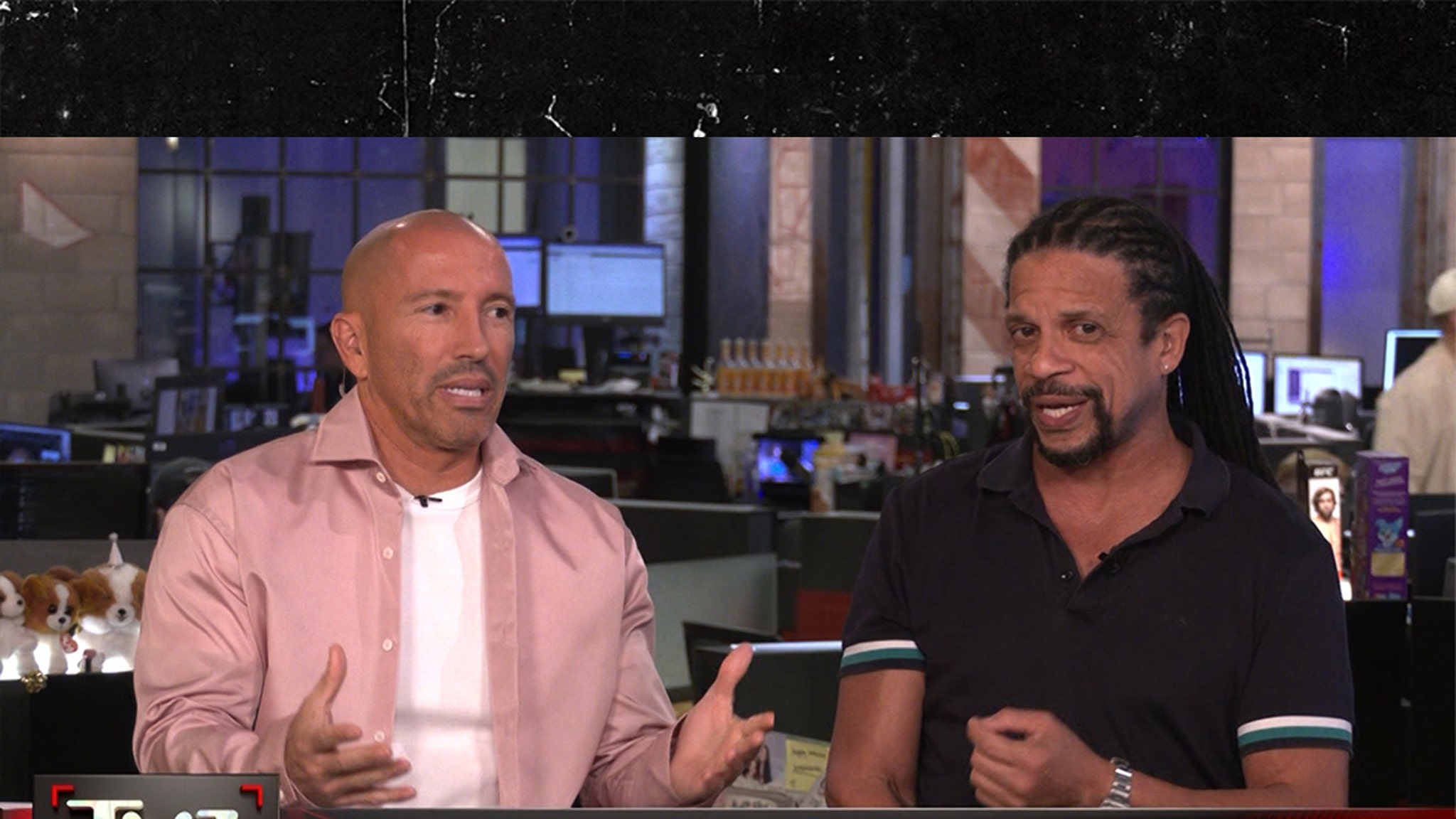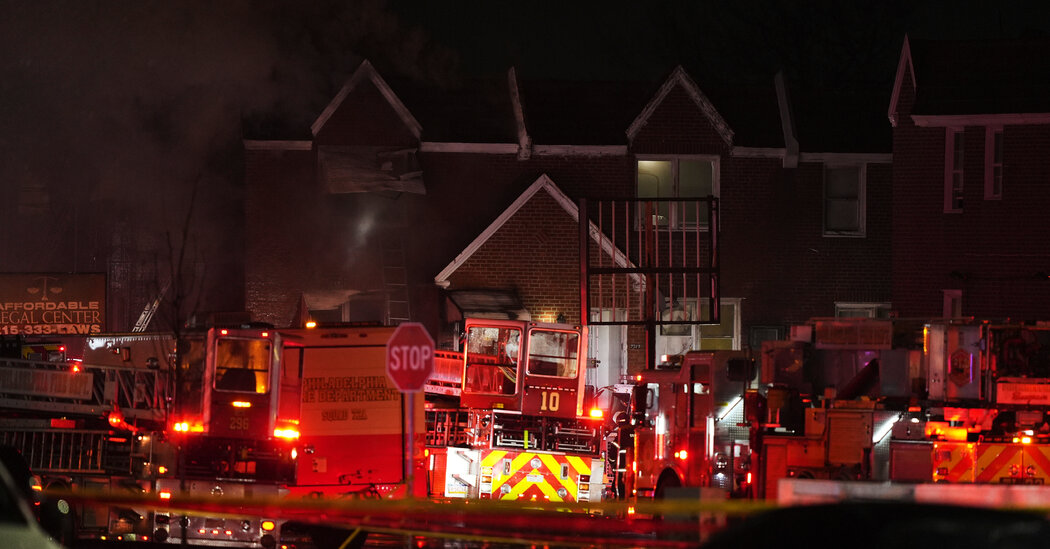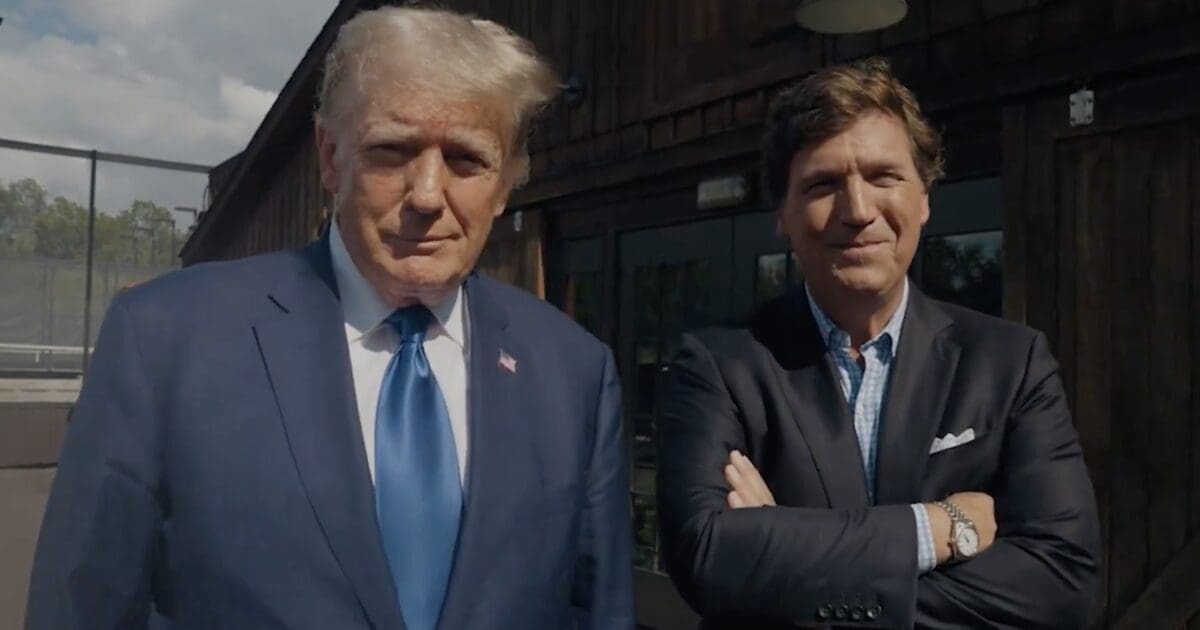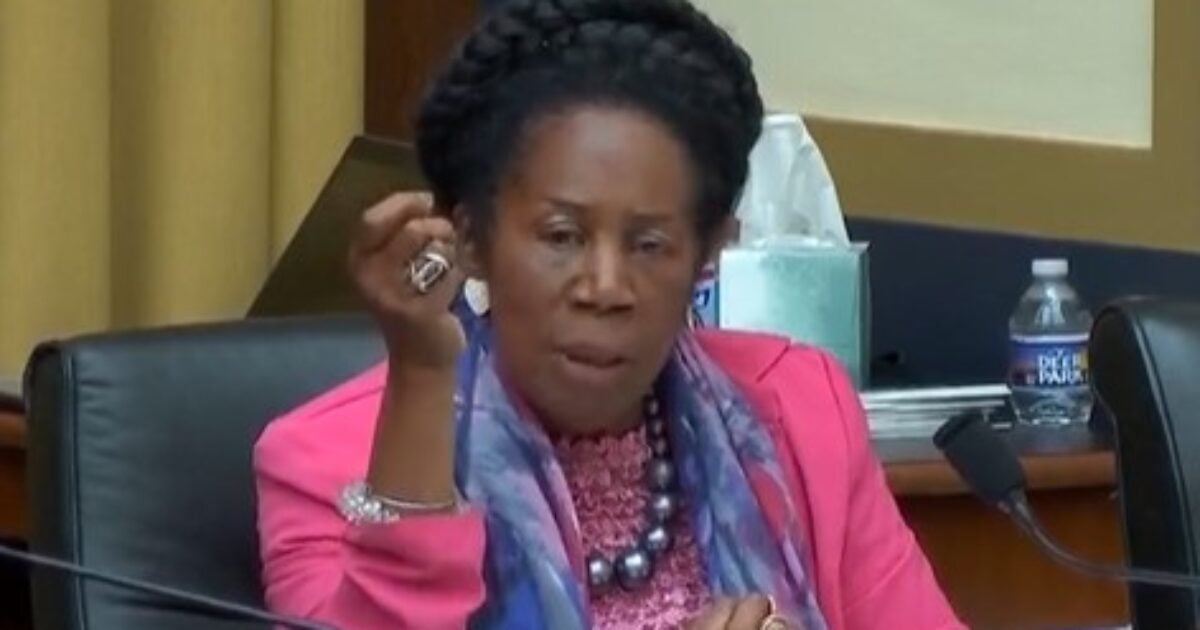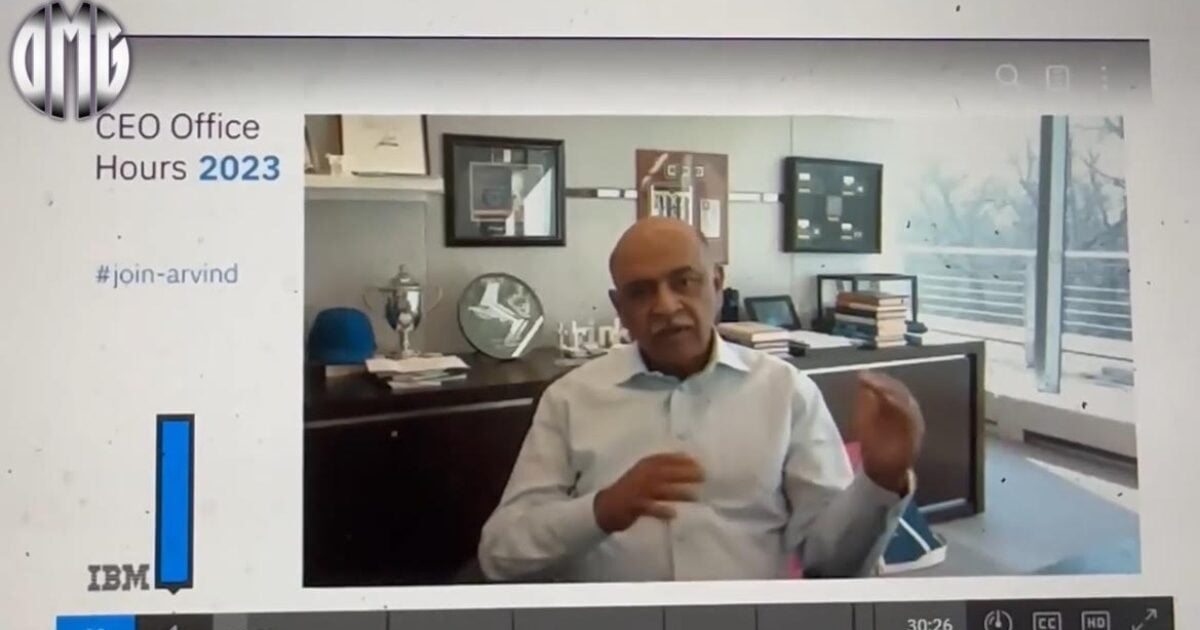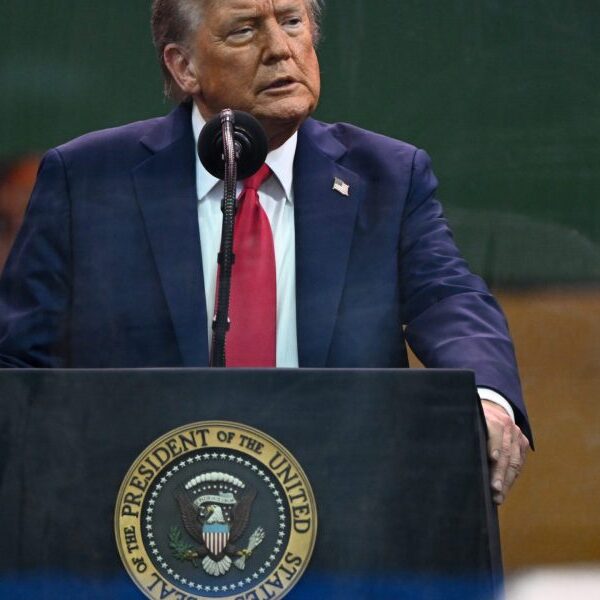ADVERTISEMENT
In a highly significant diplomatic move, President Donald Trump’s special envoy, Richard Grenell, successfully negotiated the release of six American citizens from Venezuelan custody.
This development occurred today, following Grenell’s meeting with Venezuelan President Nicolás Maduro in Caracas.
This breakthrough comes at a critical time when the Trump administration has been actively pursuing an aggressive stance against crime, including ramping up deportation efforts for illegal immigrants and cracking down on dangerous gangs operating in the United States.
Grenell’s visit was largely focused on securing the release of U.S. citizens detained in Venezuela, with a special emphasis on the ongoing problem of American hostages held by the regime.
Grenell, a key figure in Trump’s foreign policy efforts, posted an update on X, sharing a photo of himself aboard an airplane with the six Americans dressed in the standard light blue outfits typically worn by prisoners in Venezuela’s notoriously harsh penal system.
«We are wheels up and headed home with these 6 American citizens,» Grenell wrote. «They just spoke to @realDonaldTrump and they couldn’t stop thanking him.» Trump himself praised the success of the mission, heralding the development as a victory for American diplomacy. «Richard Grenell has done it again—bringing six hostages home from Venezuela,» he wrote in his own post.
The identities of the six released individuals remain undisclosed, though Venezuelan officials have previously stated that at least nine
Americans were detained in the country, some facing charges of terrorism or being accused of acting as «mercenaries» for foreign interests. However, U.S. officials have consistently denied any such claims.
The release of these Americans follows a broader diplomatic push that has seen the U.S. and Venezuela engage in a delicate dance of negotiations.
Mauricio Claver-Carone, U.S. Special Envoy for Hispanic America, reiterated that these efforts were not part of any larger negotiation and that the U.S. government had made it clear: “American hostages that are being held in Venezuela must be released immediately.”
While Grenell’s diplomatic mission was framed as one of humanitarian importance, it also touched on a number of political issues with potential far-reaching consequences.
According to statements from the Venezuelan government, Grenell and Maduro discussed a wide range of topics, including the ongoing migration crisis, U.S. sanctions, and the situation of Americans detained within the country.
The two men reportedly agreed that relations between their countries needed to «turn a new page,» though U.S. officials have been cautious to assert that this does not signal any recognition of Maduro’s controversial regime.
Maduro’s administration, which has long been at odds with Washington, remains steadfast in its rejection of U.S. sanctions, which the Venezuelan government terms as a form of «economic war» designed to undermine the country’s sovereignty. U.S. sanctions were originally imposed in response to Maduro’s increasingly authoritarian rule and his controversial handling of the 2018 election, which many international observers, including the United States, consider illegitimate.
One of the critical issues on the table during Grenell’s meeting with Maduro was the issue of Venezuela-based gangs, including the notorious Tren de Aragua.
As part of ongoing U.S.-Venezuelan negotiations, the Trump administration is pushing for the return of gang members who are currently in U.S. custody. However, U.S. officials made it clear that any agreement regarding these deportations was non-negotiable.
Venezuela’s attorney general, Tarek Saab, announced that the government had dismantled the Tren de Aragua in 2023 but was willing to cooperate with the U.S. on extraditions.
This issue has added another layer of complexity to U.S.-Venezuelan relations, with the Trump administration seeking cooperation in cracking down on transnational criminal organizations. In addition to this diplomatic breakthrough, the visit also coincides with ongoing debates about U.S. energy policy.
Chevron, a major U.S. oil company, is working to protect its ability to operate in Venezuela under a special license granted by the U.S. government. Despite Chevron’s efforts, former President Trump has indicated that the U.S. should reconsider its reliance on Venezuelan oil, especially in light of the government’s continued human rights abuses.
As the U.S. braces for Trump’s anticipated return to the political stage, this diplomatic success may serve as a reminder of his commitment to protecting American citizens abroad and confronting rogue regimes like Maduro’s.
With immigration policy also front and center in the political conversation, Trump is likely to continue his hardline stance on deportation, making Venezuela a key focus in the broader conversation on illegal immigration.
Despite challenges, Grenell’s successful mission demonstrates that under the Trump administration, America remains resolute in its pursuit of justice for its citizens, no matter where they are held. This victory for the Trump team underscores the effectiveness of direct, high-level engagement, even with adversarial regimes, as a means of protecting American interests abroad.
About The Author

